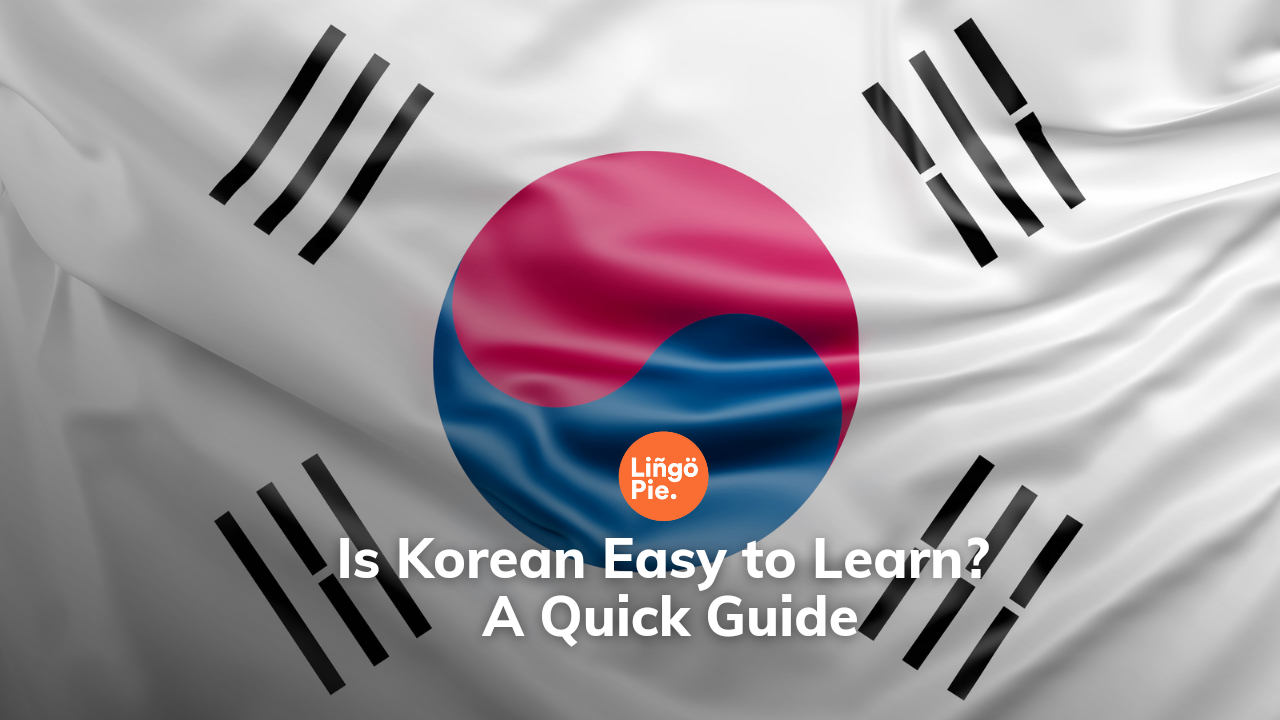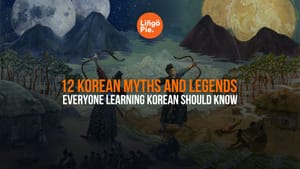Feeling stuck in your Korean language learning journey? You're not alone. But no worries! There are effective strategies to break through that barrier. By the end, you'll have practical tips to accelerate your journey to intermediate proficiency. Whether aiming for exams or deepening cultural engagement, this post has you covered.
In this blog post, we'll cover more than 500 intermediate-level vocabulary for Korean learners and discover effective tips and methods to learn Korean vocabulary faster and easier!

Korean Nouns for the Intermediate Level
Household and Places
This section includes nouns related to the home and places you visit frequently. Learning these terms is essential for describing your surroundings and daily activities.
| Korean | English | Example |
|---|---|---|
| 집 (jip) | House | 저녁에 집에 갑니다 (I go home in the evening) |
| 학교 (hakgyo) | School | 학교에 가고 있어요 (I’m going to school) |
| 병원 (byeongwon) | Hospital | 병원에 가야 해요 (I have to go to the hospital) |
| 공원 (gongwon) | Park | 공원에서 산책해요 (I walk in the park) |
| 도서관 (doseogwan) | Library | 도서관에서 공부해요 (I study at the library) |
| 시장 (sijang) | Market | 시장에서 물건을 사요 (I buy things at the market) |
| 가게 (gage) | Store | 가게에 가고 있어요 (I’m going to the store) |
| 회사 (hoesa) | Company | 회사에서 일해요 (I work at a company) |
| 화장실 (hwajangsil) | Bathroom | 화장실을 사용하고 싶어요 (I want to use the bathroom) |
| 집 (jip) | Home | 집이 크고 편안해요 (The house is big and comfortable) |
| 공항 (gonghang) | Airport | 공항에서 비행기를 탔어요 (I took a plane at the airport) |
| 역 (yeok) | Station | 역에서 기차를 탔어요 (I boarded the train at the station) |
| 교실 (gyosil) | Classroom | 교실에서 수업을 듣고 있어요 (I am in class) |
| 식당 (sikdang) | Restaurant | 식당에서 저녁을 먹었어요 (I had dinner at the restaurant) |
| 극장 (geukjang) | Theater | 극장에서 영화를 봤어요 (I watched a movie at the theater) |
Food and Beverages
Food and drinks are an essential part of daily life and culture. These nouns will help you navigate conversations about meals and dining.
| Korean | English | Example |
|---|---|---|
| 밥 (bap) | Rice | 밥을 먹었어요? (Have you eaten rice?) |
| 물 (mul) | Water | 물을 마시고 싶어요 (I want to drink water) |
| 김치 (kimchi) | Kimchi | 김치는 매워요 (Kimchi is spicy) |
| 빵 (ppang) | Bread | 빵을 샀어요 (I bought bread) |
| 과일 (gwail) | Fruit | 과일을 좋아해요 (I like fruit) |
| 고기 (gogi) | Meat | 고기를 많이 먹어요 (I eat a lot of meat) |
| 우유 (uyu) | Milk | 우유를 마셔요 (I drink milk) |
| 커피 (keopi) | Coffee | 커피 한 잔 주세요 (One cup of coffee, please) |
| 차 (cha) | Tea | 차를 마셔요 (I drink tea) |
| 국 (guk) | Soup | 국이 맛있어요 (The soup is delicious) |
| 생선 (saengseon) | Fish | 생선을 좋아해요 (I like fish) |
| 채소 (chaeso) | Vegetables | 채소를 먹어요 (I eat vegetables) |
| 주스 (juseu) | Juice | 주스를 마셨어요 (I drank juice) |
| 아이스크림 (aiseukeurim) | Ice cream | 아이스크림을 좋아해요 (I like ice cream) |
| 과자 (gwaja) | Snacks | 과자를 먹었어요 (I ate snacks) |
Nature and Environment
Here, you will find nouns related to nature and the environment. These are useful when discussing the weather or outdoor settings.
| Korean | English | Example |
|---|---|---|
| 산 (san) | Mountain | 산이 정말 아름다워요 (The mountain is beautiful) |
| 바다 (bada) | Sea | 바다에 가고 싶어요 (I want to go to the sea) |
| 날씨 (nalssi) | Weather | 오늘 날씨가 좋아요 (The weather today is good) |
| 나무 (namu) | Tree | 나무가 많아요 (There are many trees) |
| 하늘 (haneul) | Sky | 하늘이 파래요 (The sky is blue) |
| 별 (byeol) | Star | 별이 빛나요 (The stars are shining) |
| 꽃 (kkot) | Flower | 꽃이 예뻐요 (The flowers are pretty) |
| 계절 (gyejeol) | Season | 봄은 따뜻해요 (Spring is warm) |
| 강 (gang) | River | 강에서 수영해요 (I swim in the river) |
| 폭포 (pokpo) | Waterfall | 폭포가 커요 (The waterfall is large) |
| 공기 (gonggi) | Air | 공기가 깨끗해요 (The air is clean) |
| 동물 (dongmul) | Animal | 동물이 많아요 (There are many animals) |
| 숲 (sup) | Forest | 숲에서 산책했어요 (I walked in the forest) |
| 섬 (seom) | Island | 섬에서 쉬고 싶어요 (I want to rest on an island) |
| 바람 (baram) | Wind | 바람이 불어요 (The wind is blowing) |
People and Relationships
Personal and social relationships are key parts of daily life. With these words, you’ll be able to talk about friends, family, and social connections.
| Korean | English | Example |
|---|---|---|
| 친구 (chingu) | Friend | 내 친구는 친절해요 (My friend is kind) |
| 가족 (gajok) | Family | 가족과 함께 있어요 (I’m with my family) |
| 부모님 (bumonim) | Parents | 부모님이 보고 싶어요 (I miss my parents) |
| 형제 (hyeongje) | Siblings | 형제와 놀았어요 (I played with my siblings) |
| 할머니 (halmeoni) | Grandmother | 할머니가 요리해요 (My grandmother is cooking) |
| 할아버지 (harabeoji) | Grandfather | 할아버지가 산책해요 (My grandfather is walking) |
| 남편 (nampyeon) | Husband | 남편과 외출해요 (I’m going out with my husband) |
| 아내 (anae) | Wife | 아내가 요리해요 (My wife is cooking) |
| 아이 (ai) | Child | 아이가 학교에 다녀요 (The child goes to school) |
| 친구들 (chingudeul) | Friends | 친구들과 함께 있어요 (I’m with my friends) |
| 남자 (namja) | Man | 남자가 이야기하고 있어요 (The man is talking) |
| 여자 (yeoja) | Woman | 여자가 춤을 추고 있어요 (The woman is dancing) |
| 이웃 (iut) | Neighbor | 이웃이 친절해요 (The neighbor is kind) |
| 선생님 (seonsaengnim) | Teacher | 선생님이 수업해요 (The teacher is giving a lesson) |
| 동료 (dongnyo) | Colleague | 동료와 일해요 (I work with my colleague) |
Korean Verbs for the Intermediate Level
Daily Actions
These Korean verbs describe common, everyday activities that are essential in daily communication.
- 가다 (gada): To go
- 오다 (oda): To come
- 먹다 (meokda): To eat
- 마시다 (masida): To drink
- 자다 (jada): To sleep
Communication Verbs
Learn verbs related to speaking, listening, and interacting with others.
- 말하다 (malhada): To speak
- 듣다 (deutda): To listen
- 질문하다 (jilmunhada): To ask
- 대답하다 (daedaphada): To answer
- 부르다 (bureuda): To call
Mental Processes
These verbs help describe thinking, understanding, and making decisions.
- 생각하다 (saenggakhada): To think
- 이해하다 (ihaehada): To understand
- 기억하다 (gieokhada): To remember
- 잊다 (itda): To forget
- 결정하다 (gyeoljeonghada): To decide
Movement Verbs
Use these verbs to describe physical actions like walking, running, or moving from one place to another.
- 뛰다 (ttwida): To run
- 걷다 (geotda): To walk
- 타다 (tada): To ride
- 올라가다 (ollagada): To go up
- 내려가다 (naeryeogada): To go down
Emotion and Sensation Verbs
These verbs help describe feelings and states of being.
- 행복하다 (haengbokhada): To be happy
- 슬프다 (seulpuda): To be sad
- 피곤하다 (pigonhada): To be tired
- 화나다 (hwanada): To be angry
- 놀라다 (nollada): To be surprised
Korean Adjectives for the Intermediate Level
Physical State Adjectives
These adjectives describe the size, weight, and physical condition of objects or people.
| Korean | English | Example |
|---|---|---|
| 크다 (keuda) | Big | 이 방은 크다 (This room is big) |
| 작다 (jakda) | Small | 책상이 작다 (The desk is small) |
| 길다 (gilda) | Long | 머리가 길다 (Hair is long) |
| 짧다 (jjalbda) | Short | 바지가 짧다 (The pants are short) |
| 무겁다 (mugeopda) | Heavy | 가방이 무겁다 (The bag is heavy) |
| 가볍다 (gabyeopda) | Light | 책이 가볍다 (The book is light) |
| 넓다 (neolda) | Wide | 길이 넓다 (The road is wide) |
| 좁다 (jopda) | Narrow | 문이 좁다 (The door is narrow) |
| 두껍다 (dukkeopda) | Thick | 책이 두껍다 (The book is thick) |
| 얇다 (yalbda) | Thin | 종이가 얇다 (The paper is thin) |
| 높다 (nopda) | High | 산이 높다 (The mountain is high) |
| 낮다 (natda) | Low | 책장이 낮다 (The bookshelf is low) |
| 빠르다 (ppareuda) | Fast | 차가 빠르다 (The car is fast) |
| 느리다 (neurida) | Slow | 기차가 느리다 (The train is slow) |
| 뜨겁다 (tteugeopda) | Hot | 물이 뜨겁다 (The water is hot) |
Personality Adjectives
These adjectives describe someone's personality or character traits.
| Korean | English | Example |
|---|---|---|
| 착하다 (chakhada) | Kind | 그는 착하다 (He is kind) |
| 똑똑하다 (ttokttokhada) | Smart | 그녀는 똑똑하다 (She is smart) |
| 게으르다 (geeureuda) | Lazy | 그는 게으르다 (He is lazy) |
| 용감하다 (yonggamhada) | Brave | 그녀는 용감하다 (She is brave) |
| 친절하다 (chinjeolhada) | Friendly | 선생님이 친절하다 (The teacher is friendly) |
| 정직하다 (jeongjikhada) | Honest | 그는 정직하다 (He is honest) |
| 이기적이다 (igijeogida) | Selfish | 그 사람은 이기적이다 (He is selfish) |
| 재미있다 (jaemiitda) | Fun | 친구가 재미있다 (The friend is fun) |
| 사교적이다 (sagyujeogida) | Sociable | 그녀는 사교적이다 (She is sociable) |
| 성실하다 (seongsilhada) | Diligent | 그는 성실하다 (He is diligent) |
| 신중하다 (sinjunghada) | Cautious | 그녀는 신중하다 (She is cautious) |
| 대담하다 (daedamhada) | Bold | 그가 대담하다 (He is bold) |
| 차분하다 (chabunhada) | Calm | 그가 차분하다 (He is calm) |
| 부지런하다 (bujireonhada) | Hard-working | 그는 부지런하다 (He is hard-working) |
| 욕심이 많다 (yoksimi manta) | Greedy | 그는 욕심이 많다 (He is greedy) |
Emotional Adjectives
These adjectives express feelings and emotions, allowing you to talk about mood and emotional states.
| Korean | English | Example |
|---|---|---|
| 행복하다 (haengbokhada) | Happy | 나는 행복하다 (I am happy) |
| 슬프다 (seulpuda) | Sad | 그녀는 슬프다 (She is sad) |
| 피곤하다 (pigonhada) | Tired | 나는 피곤하다 (I am tired) |
| 화나다 (hwanada) | Angry | 그는 화가 났다 (He is angry) |
| 놀라다 (nollada) | Surprised | 나는 놀랐다 (I am surprised) |
| 걱정하다 (geokjeonghada) | Worried | 나는 걱정하고 있다 (I am worried) |
| 불안하다 (buranhada) | Anxious | 그녀는 불안하다 (She is anxious) |
| 즐겁다 (jeulgeopda) | Joyful | 오늘이 즐겁다 (Today is joyful) |
| 외롭다 (oeropda) | Lonely | 그는 외롭다 (He is lonely) |
| 지루하다 (jiruhada) | Bored | 수업이 지루하다 (The class is boring) |
| 무섭다 (museopda) | Scared | 나는 무섭다 (I am scared) |
| 미안하다 (mianhada) | Sorry | 그녀는 미안해요 (She is sorry) |
| 편안하다 (pyeonanada) | Comfortable | 나는 편안하다 (I am comfortable) |
| 신나다 (sinnada) | Excited | 나는 신이 났다 (I am excited) |
| 만족하다 (manjokhada) | Satisfied | 나는 만족한다 (I am satisfied) |
Weather and Climate Adjectives
These adjectives are useful when discussing weather and temperatures.
| Korean | English | Example |
|---|---|---|
| 덥다 (deopda) | Hot | 날씨가 덥다 (The weather is hot) |
| 춥다 (chupda) | Cold | 날씨가 춥다 (The weather is cold) |
| 따뜻하다 (ttatteuthada) | Warm | 날씨가 따뜻하다 (The weather is warm) |
| 시원하다 (siwonhada) | Cool | 바람이 시원하다 (The wind is cool) |
| 맑다 (makda) | Clear | 하늘이 맑다 (The sky is clear) |
| 흐리다 (heurida) | Cloudy | 하늘이 흐리다 (The sky is cloudy) |
| 비가 오다 (biga oda) | Rainy | 오늘 비가 온다 (It’s rainy today) |
| 눈이 오다 (nuni oda) | Snowy | 내일 눈이 온다 (It will snow tomorrow) |
| 바람이 불다 (barami bulda) | Windy | 바람이 많이 분다 (The wind blows strongly) |
| 습하다 (seupada) | Humid | 공기가 습하다 (The air is humid) |
| 건조하다 (geonjohada) | Dry | 공기가 건조하다 (The air is dry) |
| 서늘하다 (seoneulhada) | Chilly | 저녁이 서늘하다 (The evening is chilly) |
| 무덥다 (mudeopda) | Sweltering | 날씨가 무덥다 (The weather is sweltering) |
| 따스하다 (ttaseuhada) | Mild | 날씨가 따스하다 (The weather is mild) |
| 폭풍이 치다 (pokpungi chida) | Stormy | 폭풍이 치고 있다 (A storm is raging) |
Appearance Adjectives
Wondering how to compliment someone? Well, you might need to use these adjectives that describe how someone or something looks.
| Korean | English | Example |
|---|---|---|
| 예쁘다 (yeppeuda) | Pretty | 꽃이 예쁘다 (The flower is pretty) |
| 잘생기다 (jalsaenggida) | Handsome | 그가 잘생겼다 (He is handsome) |
| 귀엽다 (gwiyeopda) | Cute | 강아지가 귀엽다 (The puppy is cute) |
| 멋있다 (meositta) | Stylish | 그는 멋있다 (He is stylish) |
| 아름답다 (areumdapda) | Beautiful | 그녀는 아름답다 (She is beautiful) |
| 깔끔하다 (kkalkkeumhada) | Neat | 방이 깔끔하다 (The room is neat) |
| 우아하다 (uahada) | Elegant | 그녀는 우아하다 (She is elegant) |
| 단순하다 (dansunhada) | Simple | 디자인이 단순하다 (The design is simple) |
| 복잡하다 (bokjaphada) | Complex | 문제가 복잡하다 (The problem is complex) |
| 창백하다 (changbaekhada) | Pale | 그는 창백하다 (He is pale) |

How To Memorize Korean Vocabulary Fast?
Here are some effective tips and strategies to memorize Korean vocabulary faster and easier:
1. Use Flashcards and the Spaced Repetition Method
Flashcards are an effective tool for vocabulary retention, especially when combined with spaced repetition. This method ensures that you review words at increasing intervals, optimizing memory retention.
Spaced repetition leverages the psychological spacing effect, which suggests that information is better remembered when reviewed repeatedly over time. Sources like Anki or Quizlet offer digital flashcard systems that automate spaced repetition, making vocabulary learning more efficient and effective.
2. Create Personal Connections with Words
Creating associations between words and visual imagery, narratives, or personal experiences enhances memorization and recall. This technique engages multiple areas of the brain, making vocabulary acquisition more robust and durable.
Rather than relying solely on translation, linking words to vivid mental images or meaningful stories deepens understanding and strengthens memory traces. Utilizing mnemonic devices, such as the method of loci or the peg system, further enhances this associative learning process.
3. Learn Words in Thematic Groups
Organizing vocabulary into thematic groups or semantic categories facilitates learning by establishing contextual connections. Grouping words with similar meanings, functions, or usage patterns helps learners grasp underlying patterns and associations within the language.
This approach promotes deeper comprehension and enables learners to apply vocabulary more effectively in different contexts. Online resources like thematic vocabulary lists or language learning textbooks often categorize words according to topics or themes, aiding learners in systematic vocabulary acquisition.
4. Review and Practice Vocabulary Daily
Regular and consistent review is essential for consolidating vocabulary into long-term memory. Daily practice, even in short increments, helps maintain linguistic proficiency and prevents forgetting.
Spaced repetition algorithms automatically schedule review sessions based on individual learning curves, optimizing retention while minimizing study time. Establishing a study routine and setting achievable goals foster discipline and continuity in vocabulary learning, ensuring steady progress over time.
5. Use Mnemonic Devices
Mnemonic devices and organizational strategies aid in memorization, retrieval, and reinforcement of vocabulary. The Leitner system, for instance, categorizes flashcards into different boxes based on mastery level, allowing learners to focus on challenging words while reviewing familiar ones less frequently.
Mind maps visually organize related words or concepts, facilitating comprehension and recall through spatial associations. Mnemonics, such as acronyms, rhymes, or visual imagery, provide mental hooks for encoding and retrieving information efficiently.
6. Relate New Words to Cognates or Similar words
Drawing connections between new Korean words and cognates or familiar terms in one's native language or other languages promotes associative learning and facilitates cross-linguistic transfer.
Recognizing shared etymological roots or phonetic resemblances between languages enhances vocabulary acquisition and comprehension. Comparative linguistics, language family trees, or online translation tools can aid learners in identifying linguistic parallels and leveraging existing knowledge to expand their vocabulary repertoire.
7. Learn Hanja
Learning Hanja can significantly aid in expanding your Korean vocabulary. Many Korean words have Hanja roots, and understanding the meanings of these characters can help you decipher the meanings of unfamiliar words more easily.
By recognizing Hanja components within Korean words, you can make educated guesses about their meanings and memorize new vocabulary more effectively. Additionally, the Hanja study provides insight into the historical and cultural background of Korean words, enhancing your overall understanding of the language.
Also read:


What Level is Intermediate in Korean?
Intermediate language proficiency in Korean is between levels 3 and 4 (Topik II). This level is characterized by the ability to hold conversations with friends, perform daily tasks in Korea, travel, and understand a significant amount of TV content.
Passing the TOPIK exam with a grade of 3급 is generally seen as low intermediate, while 4급 is considered upper intermediate. Additionally, the CEFR (Common European Framework of Reference for Languages) describes lower intermediate learners similarly to TOPIK's 3급 level.
Overall, being able to construct grammatically correct sentences, describe things, express opinions, navigate places like banks and restaurants, speak without many pauses, understand and use some slang or idiomatic expressions, and comprehend a range of Korean content are indicative of an intermediate level in Korean
Frequently Asked Questions
Let's answer the most frequently asked questions here:
1. Is TOPIK level 3 intermediate?
Yes, TOPIK (Test of Proficiency in Korean) level 3 is generally considered an intermediate level.
TOPIK has six levels in total:
TOPIK 1 (levels 1 and 2) assesses basic Korean proficiency.
TOPIK 2 (levels 3 and 4) assesses intermediate Korean proficiency.
TOPIK 3 (levels 5 and 6) assesses advanced Korean proficiency.
So, TOPIK level 3 falls within the intermediate range.
2. Can I learn Korean in 3 months?
Learning Korean in three months is possible, but it depends on several factors such as your dedication, available time for study, previous language learning experience, and the methods/resources you use for learning.
While three months may not be enough to achieve fluency in Korean, with dedication and effective learning strategies, you can make significant progress and build a solid foundation in Korean. Remember that language learning is a journey, and every step you take brings you closer to your goals.
3. How long does it take to learn B1 Korean?
Reaching a B1 level in Korean typically requires around 200-300 hours of study. However, individual progress may vary based on factors such as prior language learning experience, intensity of study, quality of resources, immersion, and individual learning style.
While some learners may achieve a B1 level within 6-12 months with consistent effort and effective study methods, others may take longer to reach this proficiency level.
4. How much vocabulary is enough for Korean?
The number of vocabulary words needed to speak Korean fluently ranges from 3000 to 5000. Learning and developing Korean vocabulary is crucial for understanding and speaking the language effectively.
While some learners estimate their vocabulary at around 4000 words for an intermediate level, the ability to use vocabulary in conversations is more important than merely knowing a high number of words
Learn Korean by Watching K-dramas with Lingopie!
Lingopie offers a unique and immersive language-learning experience that combines the enjoyment of watching your favorite Korean dramas and TV shows with effective language-learning tools.
With Lingopie, you have access to a vast library of authentic Korean content, including popular dramas, variety shows, and documentaries, all available with subtitles in both English and Korean.
This dual subtitle feature allows you to follow along with the dialogue while simultaneously learning new vocabulary and phrases in context. It also provides interactive features such as click-to-translate, where you can easily look up the meaning of words and expressions while watching.
So, whether you're a beginner or an advanced learner, Lingopie offers a fun, engaging, and effective way to learn Korean while enjoying the best of Korean TV shows and movies.
Download Lingopie from the App Store or Play Store now and get a FREE 7-day trial!






![Can You Learn Spanish By Watching TV? [15 Easy Tips]](/blog/content/images/size/w1200/2024/05/Can-You-Learn-Spanish-By-Watching-TV.jpg)



